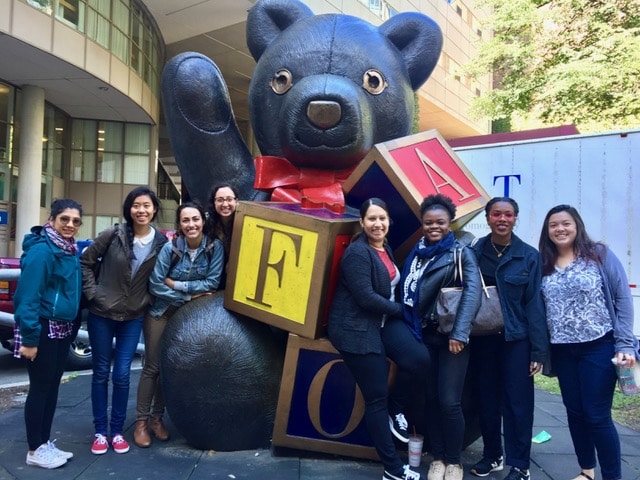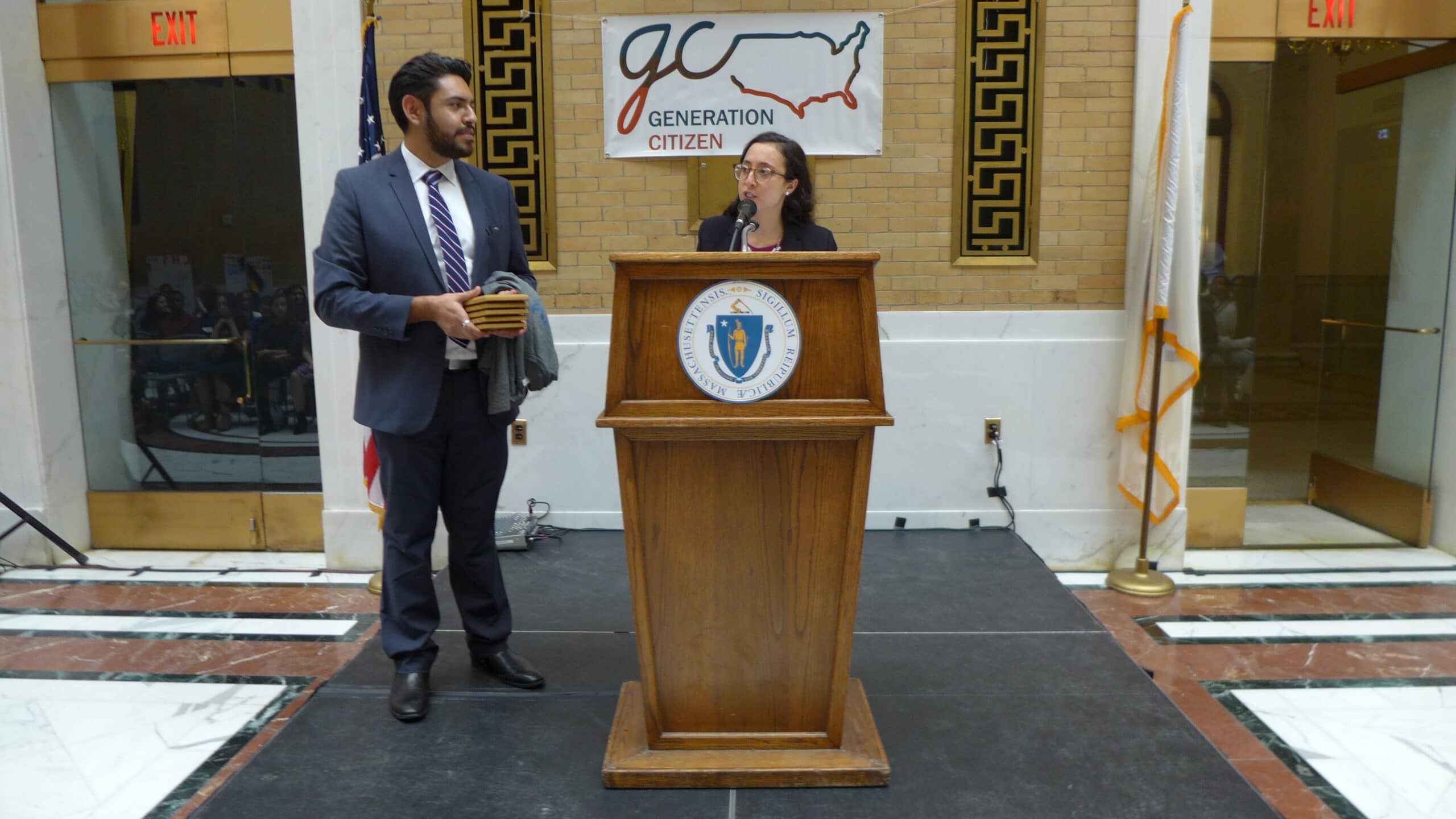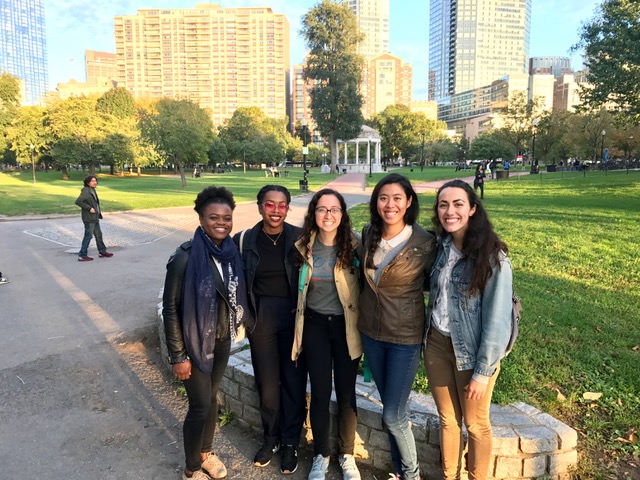
The FAO Schwarz Fellowship is a two-year fellowship program for recent college graduates. The program aims to train future social impact leaders and help non-profit organizations in Boston, New York, and Philadelphia. Fellows work in youth and educational organizations and initiate new projects to strengthen the host organization. In addition to excellent mentorship, a salary of $29-30,000 and health benefits are provided yearly.
To learn more about this program and to get some application suggestions, we spoke with Samantha Perlman, a current FAO Schwarz fellow.
1. What inspired you to apply for the FAO Schwarz Fellowship?
Throughout government internships and extracurricular involvement in college, I developed a strong dedication to public service. My enthusiasm for civic activism grew further from studying abroad in South Africa. During my time at the University of Cape Town, South African university students sparked the #FeesMustFall movement, calling for an end to outsourcing, student fee hikes, and for the decolonization of the university. Witnessing youth mobilization and the capacity to be a change agent first-hand, coupled with my senior thesis research, led me toward Generation Citizen and this fellowship. I knew from these experiences that I wanted to continue working at a grassroots level.
I came across the FAO fellow opportunity after my fellowship director at Emory referred me to the website. I was immediately drawn to the direct service and special project aspects of the role, as well as Generation Citizen’s mission for Action Civics, which was so closely aligned with my professional aspirations. One of my hopes through participating in this fellowship was to mobilize via a bottom-up theory of change so that I could examine civic access and youth organizing on a local level. This continues to be the most rewarding aspect of my host organization and fellowship. Simultaneously, I hoped for a larger community of young professionals after graduating from college, which I found in the larger cohort of FAO Fellows.
2. What is a typical week like for an FAO Schwarz Fellow?
The fellowship is unique in that there is no such thing as a typical week and all of the fellows have different responsibilities and work experiences based on their host organization. One of the best parts about this fellowship is that you obtain hands-on work experience while partaking in higher-level projects. During the semester, a large part of my time is spent traveling to schools and colleges in order to assess program implementation and quality. I help design and facilitate sessions for our semester college volunteer training as well as chapter leadership retreats. I also operate as a staff advisor to three of our college chapters in Boston, helping mentor college leadership and volunteers in addition to providing real-time coaching and feedback on curriculum implementation. In the summer, I help oversee our Community Change Fellowship Program, which allows students who participated in Generation Citizen to continue their civic leadership through an advocacy or government internship coupled with professional development workshops.
Some examples of my special project work include operating our advocacy platform that provides focus issue research to our classrooms as well as assisting with teacher coachings. Generation Citizen, like many of the fellowship host organizations, provides incredible opportunities for voluntary leadership and organizational influence. For example, GC has various staff working groups related to national projects around diversity equity and inclusion to which I regularly contribute.
One of my favorite aspects of the fellowship is the flexibility of the role so that it includes professional areas for personal growth. For example, I am able to attend grant visits, represent Generation Citizen at coalition or external meetings, and meet with elected officials. Additionally, each fellow can take on a leadership role for the Foundation. I co-lead the fellowship’s recruitment and outreach through personal engagement with college career and fellowship offices and work to inform recent college graduates about this opportunity.

3. What tips would you give others applying to the FAO Schwarz Fellowship?
Start off by researching ahead of time why your personal experiences, passions and skills match that of your intended nonprofit. Often, fellowships have you apply directly to the fellowship and then fellows receive placements after acceptance. The FAO Schwarz Fellowship operates differently — hiring occurs through the nonprofit host organizations and upon hire, one becomes a part of the fellowship. Many of the host organizations are looking to increase their capacity as an organization, and the FAO Fellow plays an important role in making this happen. Since the position necessitates special project work along with direct service, the fellowship gives young professionals the chance to take on high-level projects and partake in meetings that would not typically be accessible to recent college graduates. My biggest piece of advice is to find which host organization resonates with you and do not be afraid to confidently apply –you also can apply to more than one host organization so feel free to spread the love!
Check out the FAO Schwarz Fellowship FAQ page for more information.
We also have great current fellow stories on the FAO Fellows Blog, such as an article I wrote about civic engagement, which is a great way to keep everyone up to date on the exciting work of the FAO Fellows.

Samantha Perlman is the FAO Schwarz Fellow at Generation Citizen (GC), an Action Civics nonprofit that equips youth with tools to enact local policy changes and improve their communities. Originally from Massachusetts, Samantha graduated magna cum laude from Emory University with a double major in History and African American Studies in May 2017. Prior to her fellowship, Samantha worked within the judicial and legislative branches through various state and federal government internships in Massachusetts and Washington, D.C.
© Victoria Johnson 2018, all rights reserved.